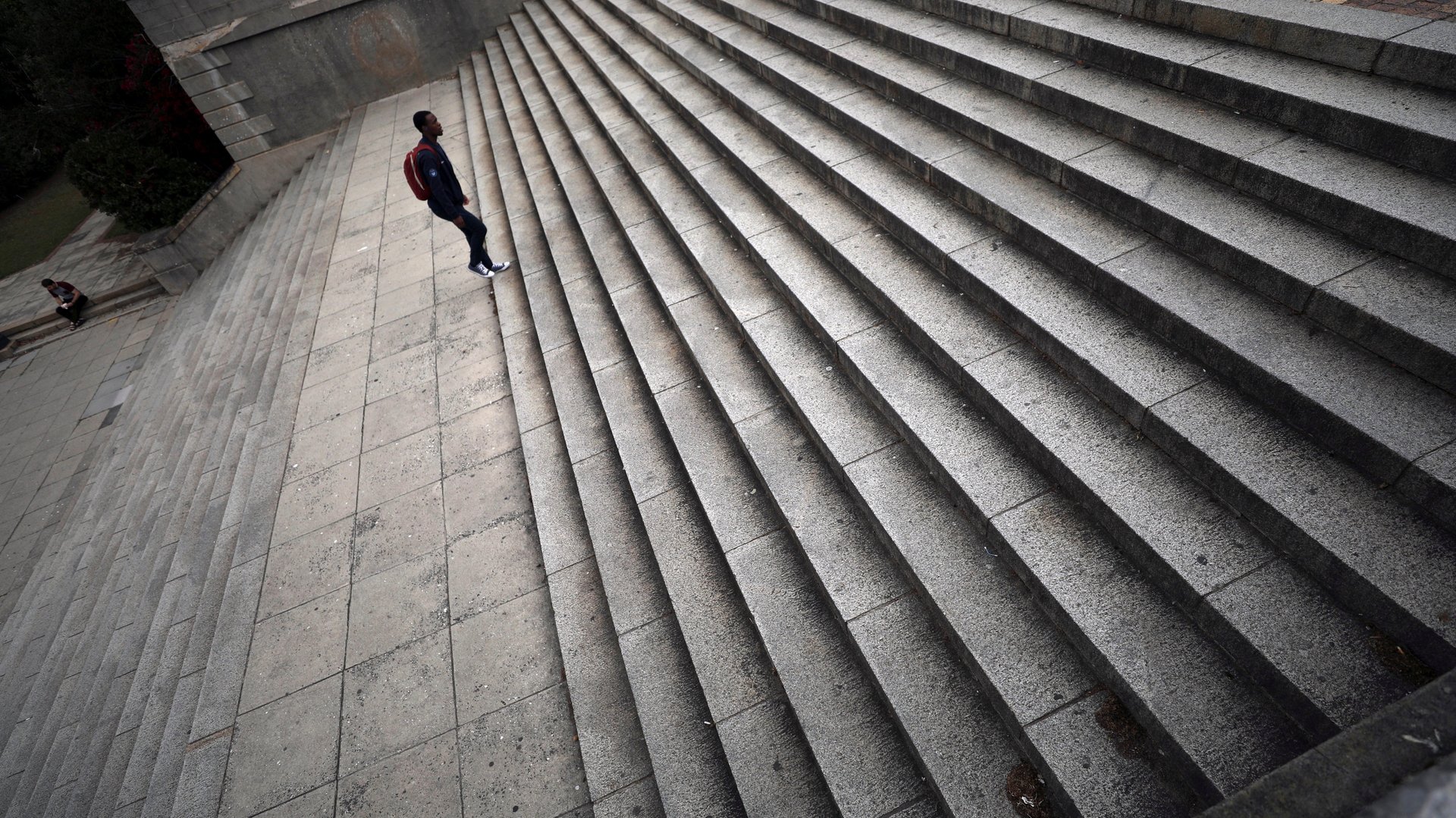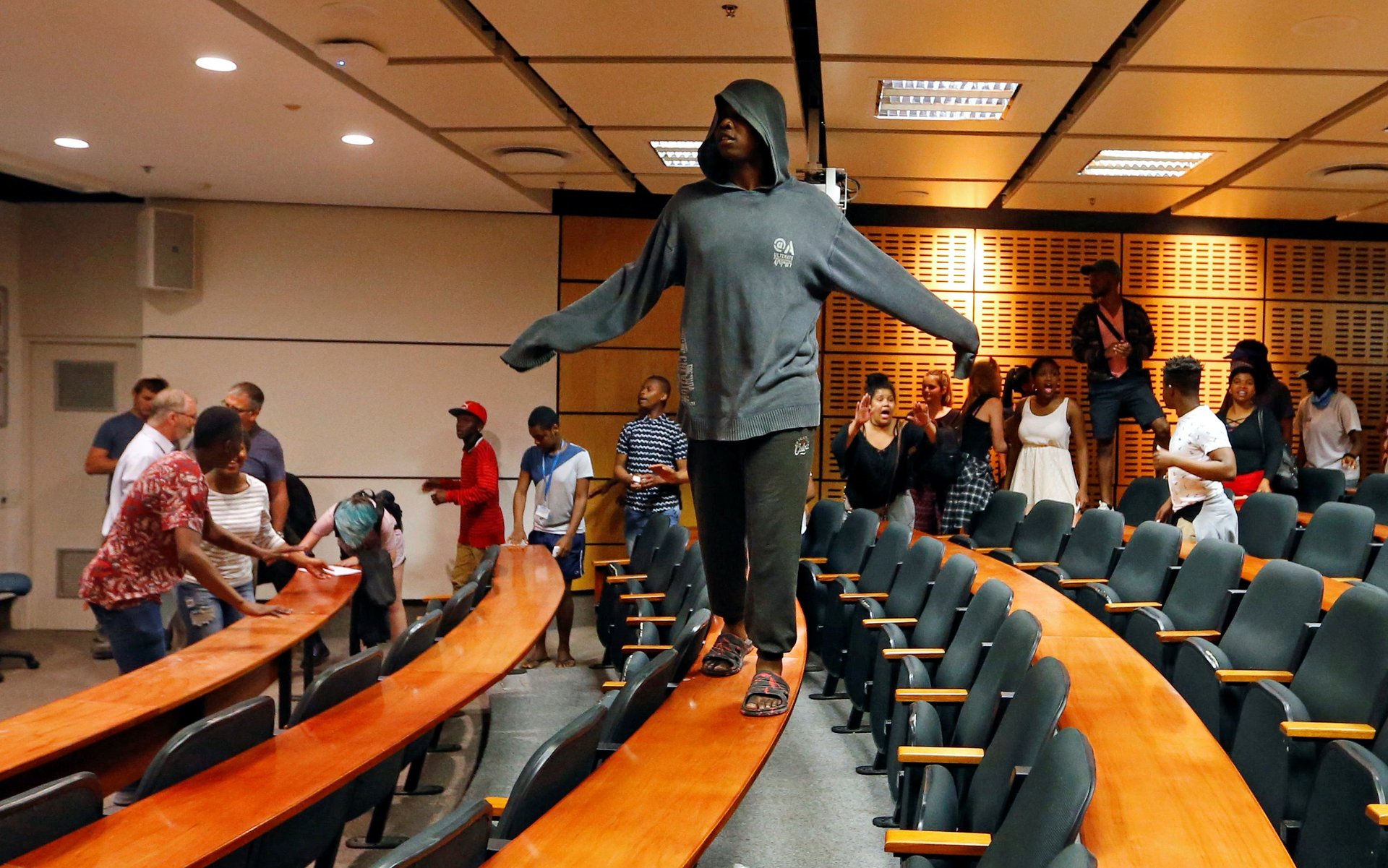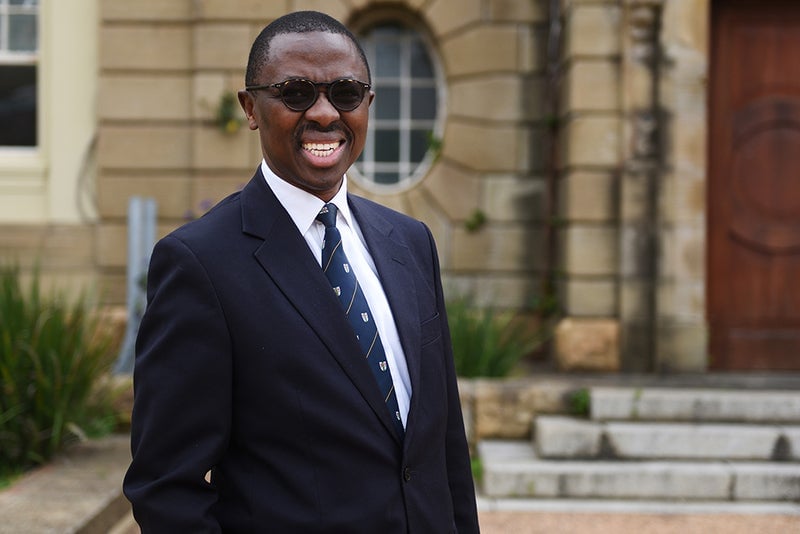Black students’ suicides on a South African campus show the toll of ignoring diversity
Black students demanding change at the University of Cape Town set off a chain of events that showed a political strength not yet expressed among a generation of South African’s born after the fall of apartheid.


Black students demanding change at the University of Cape Town set off a chain of events that showed a political strength not yet expressed among a generation of South African’s born after the fall of apartheid.
Through the #RhodesMustFall movement, they successfully removed the statue of the colonialist Cecil Rhodes from the campus in 2015 and sparked an international movement that forced others to re-evaluate his legacy. The students built #Shackville, a squatter camp in the middle of campus to bring attention to the inequality in residences and the lack of affordable student accommodation. Then came the national groundswell of the #FeesMustFall movement, calling for lower tuition and higher education accessible to the majority of black students. But those fight took their toll.
A new report reveals a high rate of suicide among black students at the university. Without giving figures, the University of Cape Town acknowledged it has a problem.
“A constantly expressed view that the reason for black students leaving the university in body-bags due to high rates of suicide was that this was because of a racist institutional culture, unreasonable academic demands, and the alienating environment,” according to the exhaustive 84-page report (pdf) by the institutional, reconciliation, and transformation commission formed to look into the tumult at the university.

The most high-profile suicide wasn’t a student, but a professor: Bongani Mayosi, a world-renowned cardiologist and the first black person appointed as professor and head of the university’s department of medicine and the linked teaching unit at Groote Schuur Hospital. During the protests, he was reportedly caught between staff and students and suffered under the mental health burden of being the only black person at the table.
The suicides at the University of Cape Town occurred as South African health practitioners and ordinary people are beginning to understand the importance of mental health. An estimated 17 million, or about a third of the country’s population, are affected by some sort of mental health issue, from mild depression to schizophrenia, according to statistics collected in the university report from the Mental Health Federation of South Africa. The country’s trauma is linked to the violence of apartheid and its enduring legacy of crime, inequality, and precarious socio-economic circumstances, as well as a lack of access to mental health facilities.
At universities, the UCT report found, these problems were compounded by stress linked to grades, finances, and a lack of institutional support. Students from impoverished backgrounds had to contend with finding lodging and affording meals in an expensive city.

All of this was further compounded by the university’s subtle and overt instances of racism and a lack of diversity, which left black students and academics isolated in an alienating environment. It didn’t help that the university only had four psychologists to a student population of about 27,000.
“It is perhaps striking that not a single submission from a black person has been received stating that UCT is not racist,” the report found. “Perhaps more surprising is the fact we have not received a single submission from a white person to that effect.”
The University of Cape Town was founded in 1829 and first accepted a handful of black students in the 1920s. As apartheid began to collapse, the number of black students increased to nearly half of the student population in 2004. While it describes itself as one of South Africa’s most diverse institutions, like most others in South Africa, the faculty are majority white and campus culture reflects this.
Part of the university’s solution was to establish a 24-hour, 365-day telephone counseling service in 2016, in partnership with the South African Depression and Anxiety Group. Yet, the March survey found that even these measures were inadequate to address the trauma students and staff grapple with. Last year the university appointed professor Mamokgethi Phakeng, a well-known academic who is pushing for diversity, but change remains slow.
Even the university’s self-examination has been found wanting. An editorial by the Mail and Guardian, a South African newspaper, pointed out that the report “hasn’t highlighted anything new” except that the university’s executive has not been listening.
Correction: This article previously referred to professor Mamokgethi Phakeng as the first black female chancellor of the University of Cape Town. This was incorrect.